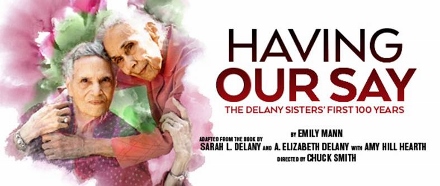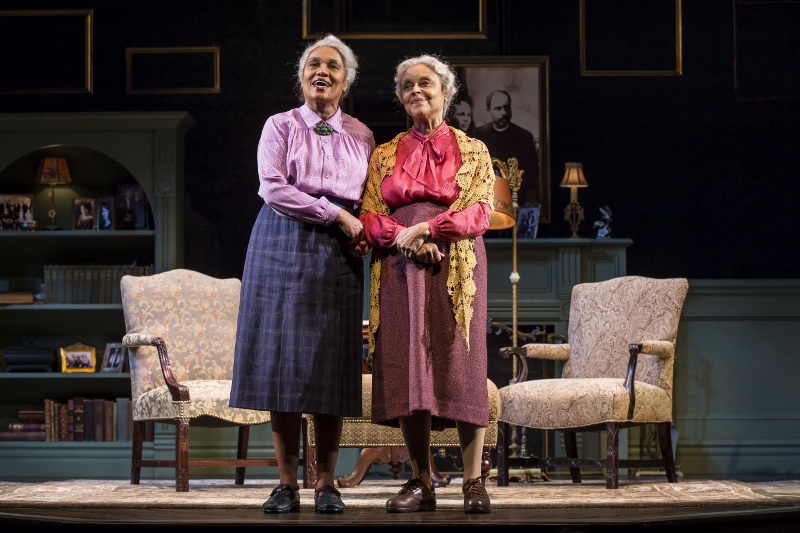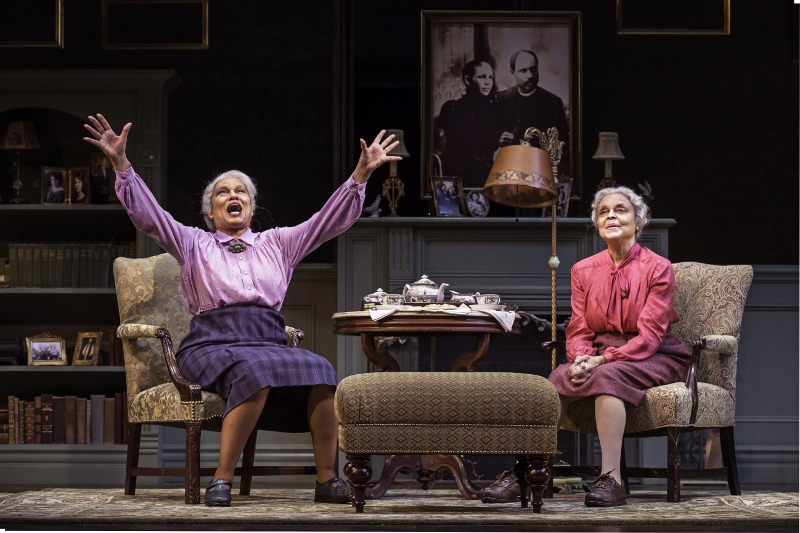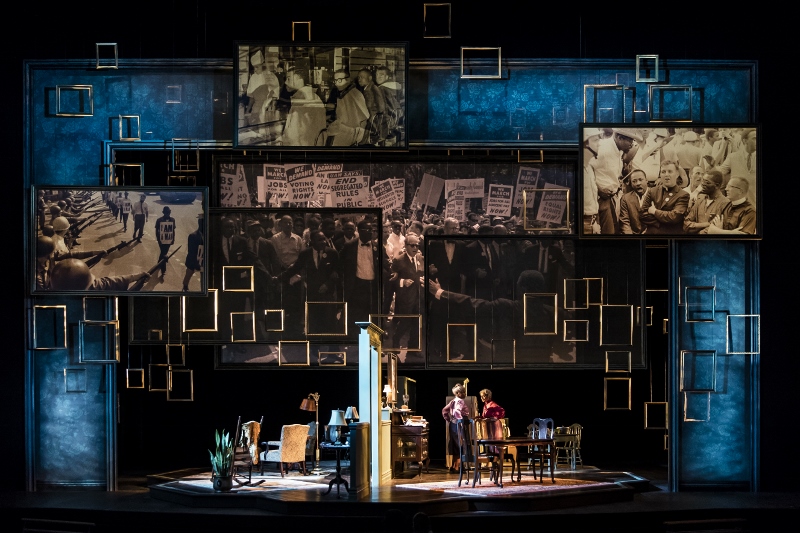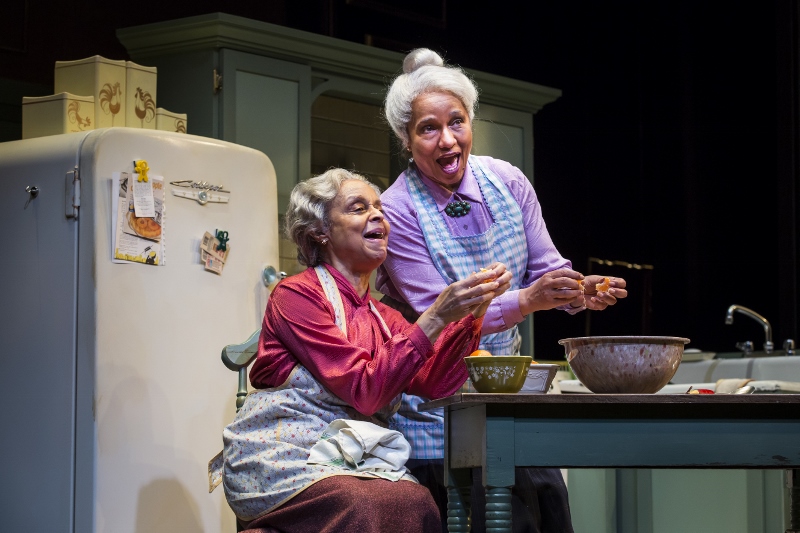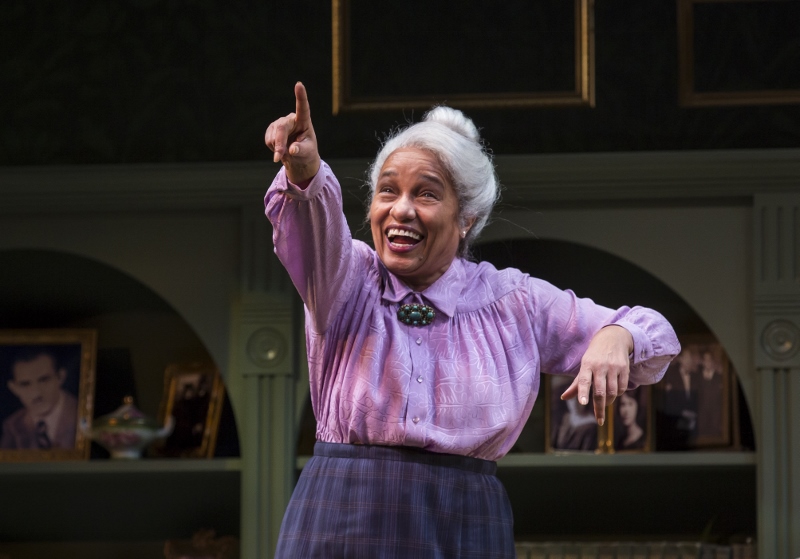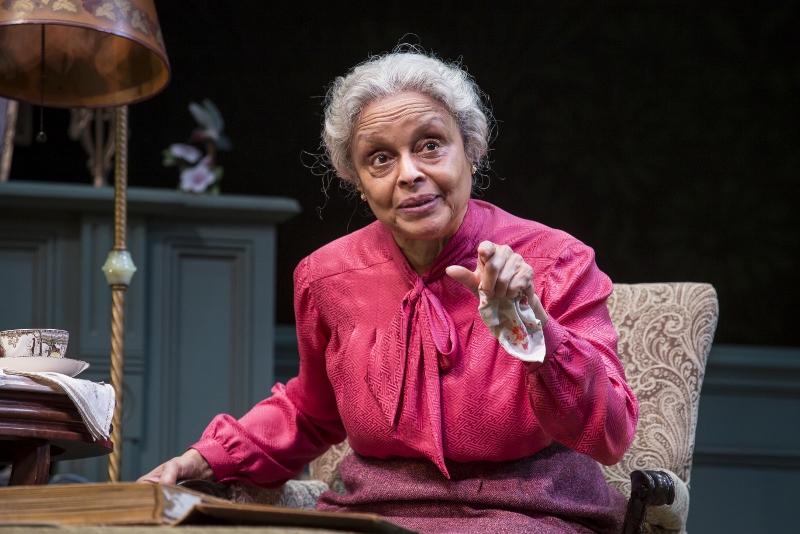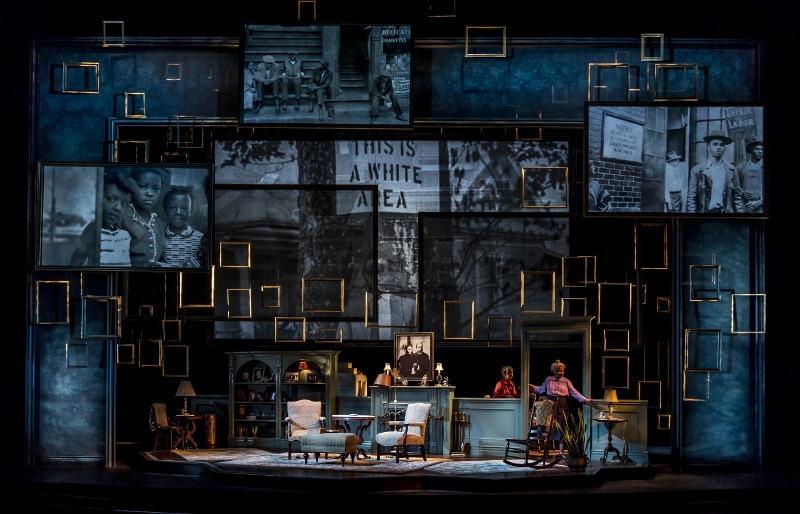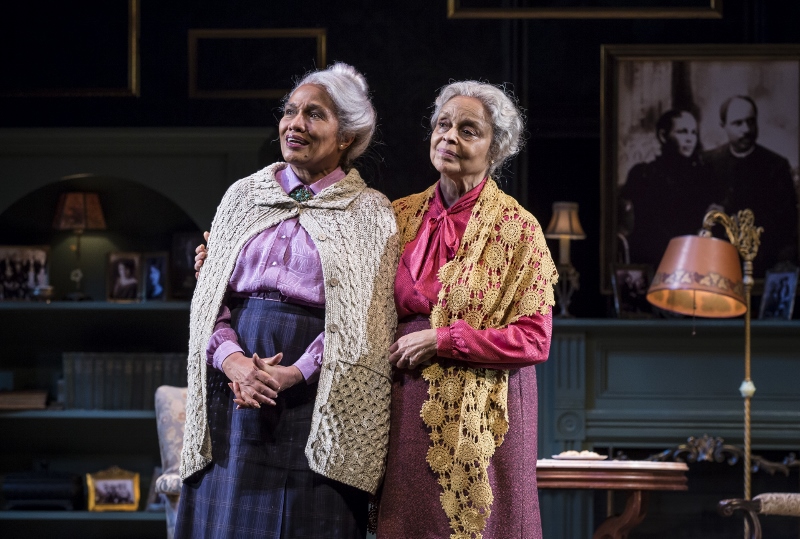OUT OF THE MOUTHS OF CENTENARIANS
“Life is short. It’s up to you to make it sweet.” No cliché in Emily Mann’s moving 1993 play, this is one of many hard-earned pearls of wisdom in her generous portrait of centenarian sisters. Based on the oral history provided by Sadie and Bessie Delany before their much-protracted deaths, Having Our Say: The Delany Sisters’ First 100 Years is now celebrating a quarter century of proving that history happens at home. And living long is the best revenge. (Bessie died in 1995 at the age of 104, Sadie in 1999 at the age of 109!)
Now gracing Goodman Theatre through June 10, Chuck Smith’s delightful revival couldn’t be more intimate, despite the vast Albert stage. But then so is its source: New York Times reporter Amy Hill Hearth’s 1991 book, the best seller that inspired Mann to turn the Delanys into the loveliest hostesses ever.
Blessed with seeming total recall, these splendid stayers (born in 1889 and 1891) reveal a mixed-blood lineage as American as hot dogs. With consummate kindness, they invite us into their parlor, dining room and kitchen in the Mount Vernon, New York home they’ve occupied since 1957 (recreated on a gloriously appointed turntable stage by Linda Buchanan with 70 empty and filled photo frames overhead). Living ancestors or, as they prefer to be called, “maiden ladies” (never “old maids”), they share tea and tales (but no phones or similar gadgets).
It’s a safe space full of crocheted doilies festooning ancient furniture. Here they practice yoga, always boil water from the tap, gulp down cod liver oil and a chopped clove of garlic, and pray for strangers. As they bustle about their kitchen, they maintain routines (full supper at noon and milkshakes at night before watching the The MacNeil/Lehrer NewsHour) that clearly maintain them. Devout women who were never marred by marriage (“We never had husbands to worry us to death”), they offer useful lessons for longevity: “No drinking, no chewing, no smoking. And always clean your plate.”
Shy, lady-like Sadie (103) and feisty and crusading Bessie (only 101) — the former molasses to the latter’s vinegar — regale us with their family albums (projected by Mike Tutaj through numerous snapshots). These detail their journey from an ideal childhood in Raleigh, North Carolina, grounded in their parents’ church campus, to the culture shock of New York City and the Harlem Renaissance (meeting Paul Robeson and Langston Hughes).
It was a long journey: Their father was a former slave who, learning to write and loving the Lord, became the first African-American to be elected bishop in the U.S. Episcopal Church. Education — dentistry for Bessie and teaching domestic science in high school for Sadie — was the keystone to all their arches. It provided balance and perspective to help two seemingly vulnerable single sisters deal with the advent of Jim Crow laws that arose after 1900. No longer could they sit in the front of streetcars or be served in their favorite drug store. Refusing to drink only from the “colored” side of a spring, defiant Bessie would surreptitiously sip the “white water.”
Trying not to blame folks who “can’t help being white,” they chronicle their confrontations with vicious “Rebbie Boys” (supremacist haters): Enforcing segregation and spitting prejudice, peckerwood trash almost lynched Bessie one day for combing her hair in a train station’s colored waiting room. Nothing made bigotry more obvious than when Bessie’s previously failed work was passed when submitted by a white colleague.
Inevitably, the Delany beacons were drawn into the civil rights movement, though they preferred the more accurate term “colored” to “black” or “African American.” Demure Sadie chose to emulate the (now deplored) conservative apologist Booker T. Washington: Bessie favored the radical separatism of W.E.B. DuBois. Both adored Eleanor Roosevelt, who would one day honor their mother’s achievements with a heartfelt embrace. They were consecrated to their community, too: Across the decades Bessie never raised her prices from $2 for cleaning and $5 for a silver filling.
If these loved ones lived across two centuries, it was for the sake of 10 siblings (who would become dentists, lawyers, teachers, a doctor, a judge) and countless relations. Their love for their mother, who lived with them in the Bronx (and who died at only 95), is palpable in their still-anguished mourning. Now they’re ready for the “big project” of old age, hardly an excuse for stasis.
For the Delanys the century’s big changes registered as domestic developments. Making history just by living day to day, old as they are, these dutiful church ladies are in fact promissory notes for a much vaster future than they could ever achieve. As much as they look back, the sweet spinsters force us forward.
Though inevitably much younger than their parts, Ella Joyce and Marie Thomas are warmly right as these dynamic siblings, depicting serene but never senile golden years. Joyce’s bumptious Bessie (Dr. Elizabeth Delany to be fully formal) and Thomas’s gentle but firm Sadie (christened Sarah) compassionately convince as spunky survivors. Thomas is graciousness itself as sweet-tempered Sadie, Joyce a life force as non-negotiable Bessie.
Letting the Delany duo get their say seems just reward for the ladies’ accumulation of four lifetimes of experience. We too grow by listening. This theater is a tonic.
photos by Liz Lauren
Having Our Say
Goodman Theatre’s Albert Theatre, 170 North Dearborn
ends on June 10, 2018
for tickets, call 312.443.3800 or visit Goodman Theatre
for more shows, visit Theatre in Chicago
